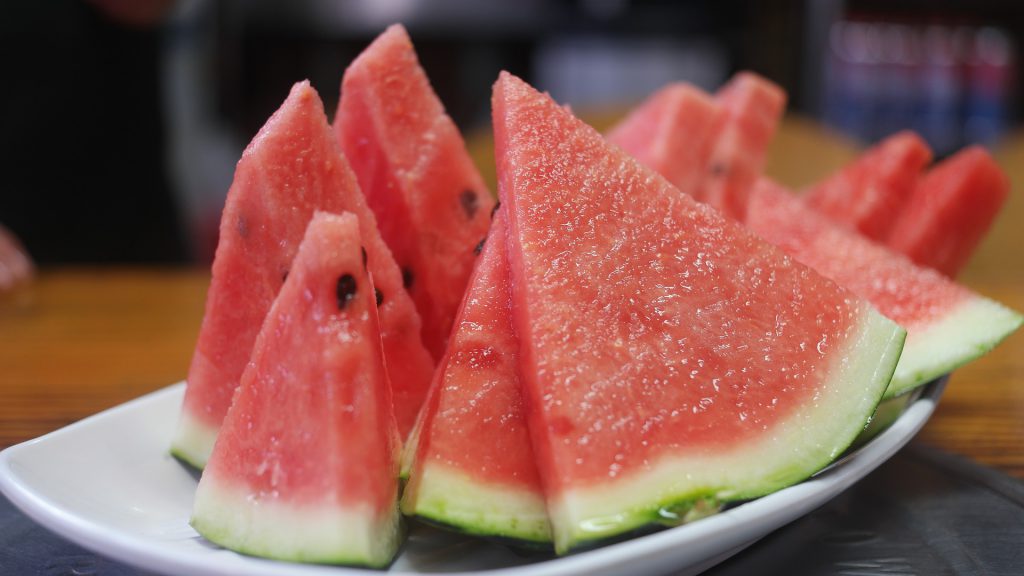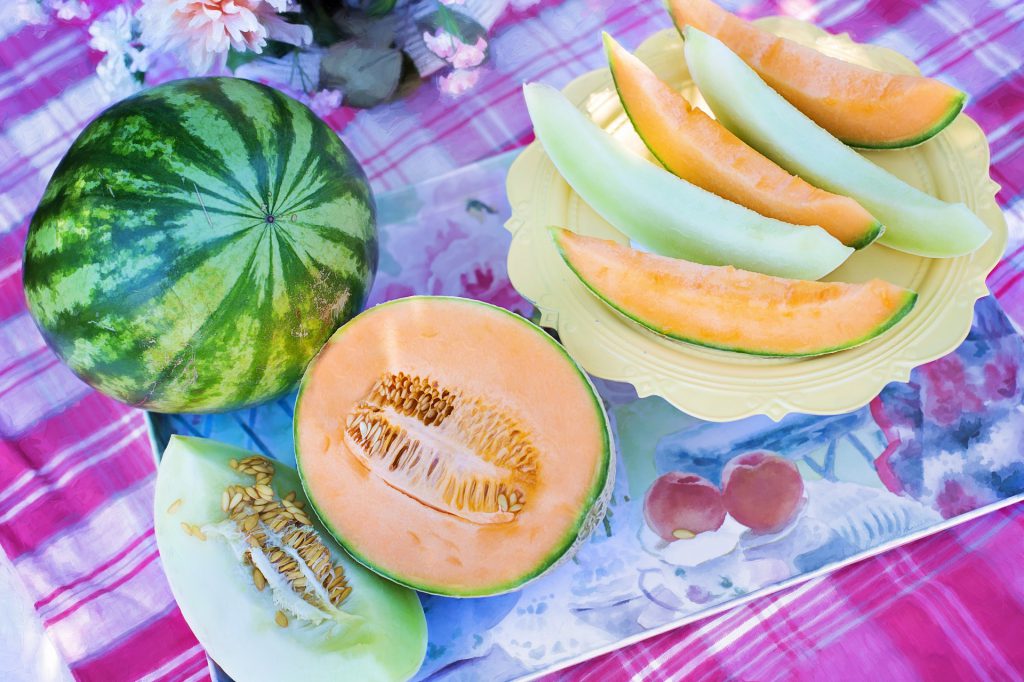The big battle of the summer fruits: What to Eat – Melon versus watermelon? Both of these amazing fruits are part of the cucumber family but have a much sweeter taste. Both contain over 90% water and have excellent amounts of vitamins and antioxidants. But which of the two is the winner and will give our body the most benefits?
The boxing ring is tumultuous and noisy. On one side of the arena stands the watermelon: puffy, large and impressive, with a green and red robe. On the other side of the arena, in an orange and yellow robe, the melon stands with complete confidence: admittedly smaller, more modest, and less popular, but not a sucker at all. So who should you pick to take to the beach or the pool in the summer months, the watermelon or the melon? The bell signals that the battle of melon versus watermelon has begun.
Watermelon
Watermelon is very popular among the young audience. It is not only beautiful on the outside, but also on the inside. Watermelon is rich in antioxidants that disrupt the negative activity of free radicals. According to a study conducted at the University of Lancaster in the UK and published in 2019, those free radicals have an effect on breathing difficulties and asthma. Antioxidants, especially vitamin C, can help prevent asthma. According to research, the effectiveness of vitamin C as a supplement has not yet been proven. But eating fruits rich in vitamin C such as watermelon can greatly help prevent breathing difficulties. For example, a cup of about 150 grams of watermelon contains about 16 percent of the daily intake of the vitamin and is considered highly recommended.
Watermelon reduces the risk of developing vascular disease, diabetes, and even multiple sclerosis. According to a study conducted at the University of Florida in the USA, watermelon is rich in blood-widening components. The watermelon contains lycopene, which is a powerful antioxidant characterized by the captivating red color.
The melon
The melon on the other hand, contains beta carotene, as in carrots, which is what gives it its color. It is known to have lots of vitamin A. Vitamin A is essential for maintaining good skin, immune system, and vision. In terms of energy, the melon has a little bit more carbohydrates and vitamin C, but both are quite similar. In the field of potassium, magnesium, and phosphorus the melon has much more significant amounts, but watermelon atones for it in the form of its folic acid, an acid known to be essential for pregnant women. Especially for those planning to get pregnant.
Few know that it is of great importance to maintain the melon properly before eating it. If it is ripe it is important to put it in the fridge immediately, preferably in a place with more moisture. It is also important not to wash it unless it is right before eating, otherwise the layer of moisture that accumulates on it may damage its taste.
In conclusion, it seems that there will be no decision here and it will probably be better to prepare two boxes before going to the pool. One with melon and the other with watermelon. And no less important, according to nutritionists, it is better to eat melon and watermelon together without mixing with other fruits. The reason is that melon and watermelon contain more water than most fruits and are therefore digested faster. Have a nice summer!



